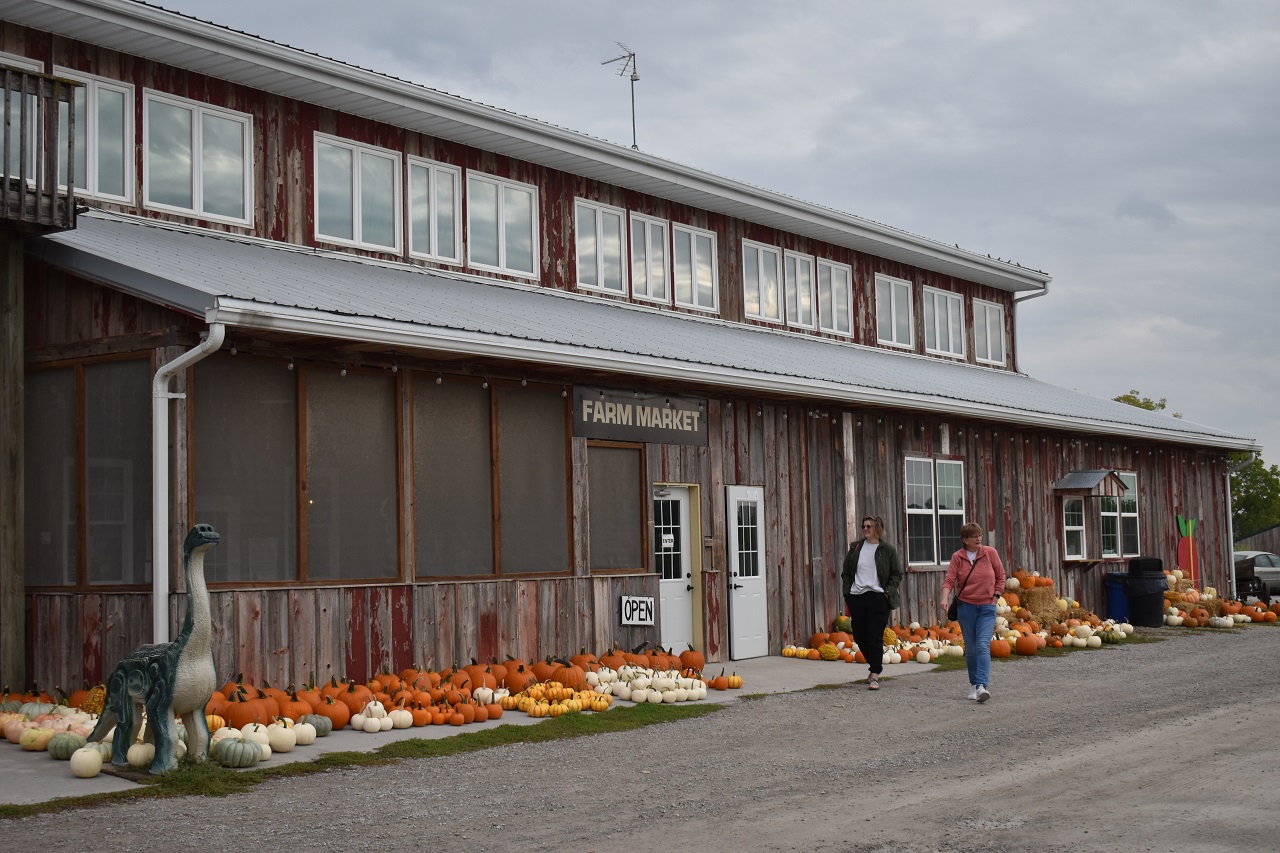
With little discussion, the Linn County Board of Supervisors voted unanimously at a work session Nov. 6 to approve the first reading of an amendment to Linn County’s development ordinance designed to provide more policy guidance to “agritourism” and other public agricultural experiences in Linn County. The ordinance, and an associated public hearing, was tabled […]
Already a subscriber? Log in
Want to Read More?
Get immediate, unlimited access to all subscriber content and much more.
Learn more in our subscriber FAQ.
- Unparalleled business coverage of the Iowa City / Cedar Rapids corridor.
- Immediate access to subscriber-only content on our website.
- 26 issues per year delivered digitally, in print or both.
- Support locally owned and operated journalism.
Do you want to read and share this article without a paywall?
Click here to purchase a paywall bypass linkWith little discussion, the Linn County Board of Supervisors voted unanimously at a work session Nov. 6 to approve the first reading of an amendment to Linn County’s development ordinance designed to provide more policy guidance to “agritourism” and other public agricultural experiences in Linn County.
The ordinance, and an associated public hearing, was tabled by the board Oct. 2, as county officials sought to gather more input from current agricultural experience providers.
The ordinance has been under consideration for about two years, Linn County planning and development director Charlie Nichols said, and was scheduled for a public hearing and first consideration Oct. 2. But Mr. Nichols noted that board chair Louie Zumbach had requested the item be pulled from the Oct. 2 agenda to allow for more input from current agritourism providers.
“There are a lot of individuals who are paying close attention to it,” Mr. Nichols said, “so I think it makes sense to get a bit more targeted outreach, particularly from the Linn County Farm Bureau. I think taking that extra time to get that input makes sense here.”
Mr. Nichols said Nov. 6 that he received little feedback from current providers, but that the Linn County Farm Bureau was “very complimentary” of Linn County and its planning and development staff and “felt like their concerns were addressed.” He also the new ordinance will make it “much easier” for many agritourism providers to get started.
Supervisor Kirsten Running-Marquardt said the new ordinance is a positive step for the county.
“This is the kind of thing that makes Linn County a good place where people want to live and raise a family,” she said. “I appreciate all the hard work and extra time that you took to make sure we get it right.”
As proposed, the ordinance would provide a definition of agritourism and public agricultural experiences, which are generally considered to be agriculturally-based operations or activities that bring visitors to a farm or ranch. Examples in Linn County include Kroul Farms and Bass Farms, both near Mount Vernon, and Allen’s Orchard in Marion.
Linn County officials have gathered input from agritourism operators in neighboring counties, such as Bloomsbury Farm near Atkins and Wilson’s Orchard near Iowa City, to formulate the proposed ordinance.
The ordinance is designed to help clarify permitting and other legal requirements for such operations, including site plans and property line setbacks. It would also include guidance on issues such as parking requirements.
Mr. Nichols noted that after county officials had outlined an initial version of the agritourism ordinance, the Iowa Legislature passed a bill prohibiting counties from requiring zoning permits for agritourism operations. As a result, Linn County officials felt there was a need to outline specific agritourism policies and sought input from current providers on their needs and goals.
“I think the concern the first time around is that we might have inadvertently been making things more difficult for current operators, which is not our intent,” Mr. Nichols said. “We don’t want to add more red tape or steps here. Our intent is to provide a pathway for some of those larger uses to operate and not have issues with Linn County.”
Agritourism operations are generally viewed favorably by county officials, Mr. Nichols said.
“We think these are good uses in Linn County,” he said. “They hit on a lot of our comprehensive plan goals. They also encompass a lot of different activities. Wilson’s Orchard is a great example. They do a you-pick operation, they have hayrack rides and live music events almost every weekend. They also have a restaurant and event venue on site. So it’s a lot of different things. We think these are good things to have. And when we started this process two years ago, we didn’t really have anything in our code that permits these types of uses.”
The proposed ordinance also distinguishes between Tier I agricultural experiences, such as temporary roadside farm stands, and larger Tier II operations that may include longer-term ventures such as a winery, brewery, cider mill, distillery, bar or restaurant, farm store, event space, banquet hall, reception facility or wedding venue.
“There’s a lot of other regulatory agencies that get involved with these types of operations, such as liquor licenses,” Mr. Nichols said. “Often public health is involved if there are food trucks on site or some other types of food items. So our ordinance does state that other permits are required if it’s a Tier 2 use.”